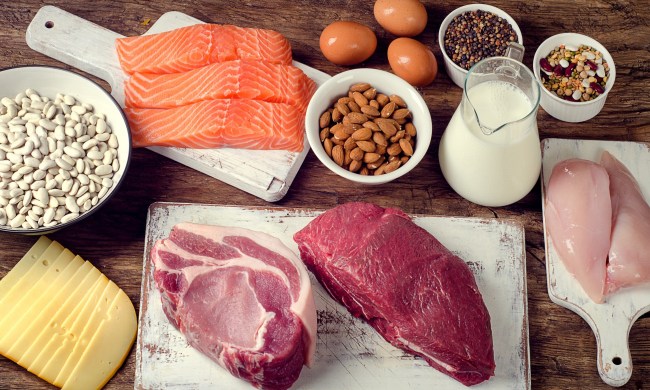
The holiday carols tell us that the winter holidays are the “season to be jolly” and the “most wonderful time of the year.”
Is that true? Santa may not be real, but holiday stress sure is. Gift-giving can get expensive, and forced time with relatives you typically prefer to avoid might be mentally toxic.
For starters, we’re not going to lean into toxic positivity here. The holidays can be challenging. However, you deserve to have your version of a happy season. Mindfulness tactics can help you cope with life, regardless of what comes out of a family member’s mouth or your financial reality. Here’s how to manage stress this holiday season.

Is holiday stress normal?
You might feel lonely in your holiday stress, especially if your social media feeds are full of perfectly choreographed matching PJ photos. However, you might find solace in knowing you’re not alone. In 2022, 31% of U.S. adults said they expected to be more stressed than the previous year, according to an American Psychiatric Association poll of more than 2,000 people.
Affording and securing gifts were among the top concerns. Others may feel “Bah humbug” about having to break bread with family members they don’t like. Dreading comments about weight, marital status, job, or politics may also have you feeling more like a Grinch than Betty Lou Who.

Mindfulness tips to help you avoid holiday stress (or destress)
Holiday stress isn’t completely avoidable. However, you can control how you react to sticky moments this holiday season. Mindfulness exercises and strategies can ground you, reducing anxiety and keeping you planted in the present moment, focusing on one breath at a time. From meditation to affirmations, these mindfulness tips will improve your mental health and make the holidays a bit merrier this year.
Practice acceptance
Try as you might, you cannot control someone else’s rude comments — ditto for plans getting canceled due to weather or travel snafus. Forget the idea that your holiday season will resemble a Hallmark movie or anything created by Norman Rockwell. When you are spiraling after something didn’t work out just right, pause and notice your resistance. From there, take a breath and imagine how much more peaceful you’d feel if you accepted the situation as is. Breathe again, and focus on what you can control (not your delayed flight).
Breathwork
Bringing your focus back to your breath can be an incredibly grounding way to stay in the moment instead of ruminating about the past or future. NAVY Seals have utilized box breathing in stressful situations. To try this method:
- Inhale for a count of four.
- Hold your breath for a count of four.
- Exhale for a count of four.
- Repeat until you feel better.
Apps such as Calm and Peloton offer meditation and breathwork exercises.
Have a safe space
When an unwanted comment flies your way or you feel overwhelmed looking at prices at the store, a temporary retreat can give you time and space to regroup. Before going somewhere, think of where you might escape to in a pinch, even if it’s the bathroom. Once you’ve removed yourself from the stressful situation, employ mindfulness tactics, like breathwork.
Set boundaries
Boundaries are a buzzword and useful mindfulness tactic. By being mindful of your limits and setting them with yourself and others, you set the stage to avoid holiday stress triggers. A boundary might look like, “We’re so excited to see you this holiday season. We’ll have a quiet Christmas morning, just us two as a couple, but we look forward to coming over for dinner later in the day.” Another example: “I am excited to see you on Thanksgiving. I’ve been working on my relationship with my body, and I’m requesting that you not comment on my food choices. If you do, I will have to leave the table and may need to leave.”
Take a meditative walk
Meditation isn’t limited to a mat. A meditative walk can help you get some gentle movement while re-centering yourself. Walk slowly, and make the wall a multi-sensory experience. Try taking deep breaths and noticing the world around you. Say phrases like, “I see trees with icicles.” “I hear the light breeze.” “I feel the sun on my face.” By focusing only on what is in front of you, you can pivot away from negative thought patterns about what’s to come or something that just happened.
Help others
Lifting someone else doesn’t just help them. Research indicates volunteering can help improve health outcomes. Volunteer opportunities often increase during the holiday season. Find something that brings you joy, like walking homeless shelter dogs if you love animals.
Create a gratitude practice
Gratitude isn’t just for Turkey Day. Thinking about what you do have can shift the focus on what you wish you could change (but can’t). A gratitude journal can be a valuable tool to establish this habit, but even just thinking about one aspect of your life you’re grateful for each morning or night works. On a particularly rough day, you may be thankful for your breath or clean water — that’s something to celebrate.
Mindfulness strategies aren’t designed to erase your problems. However, these methods can help you cope with issues, including during the high-stress holidays. Mediative walks, practicing gratitude, and volunteering are ways to shift negative thought patterns to more positive ones. Setting boundaries with yourself and others may help you prevent triggering situations in the first place. When all else fails, return to the breath. Simply inhaling and exhaling until you feel calmer can be a genuine mood-booster.



